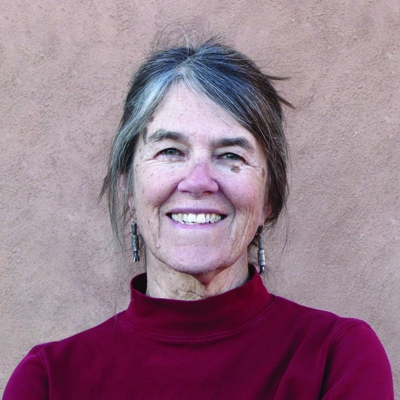
Lucy Moore
Born and raised in Seattle, Lucy went east to attend Radcliffe College, where she experienced the first of many formative culture shocks. After graduating she worked for the Boston Welfare Department as a case worker and later as an assistant to Dr. Robert Coles, author and child psychiatrist. Both jobs taught her to listen and value the voices of those engaged in struggle and inspired her, to strike out and make a difference. She moved to Chinle, Arizona, heart of Navajo country, where her two sons were born. There she taught Headstart, sold car insurance (as an alternative to the exploitative practices of local dealers) and served as Justice of the Peace, registering hundreds of voters, holding trials and acting as coroner. In 1975 she moved to Santa Fe, New Mexico, where she served a brief time as Policy Aide for Indian Affairs for the Governor of New Mexico and worked as a paralegal, before joining the fledgling conflict resolution firm, Western Network.
Since the late 1980s Lucy has worked as a mediator, facilitator, trainer and consultant, specializing in natural resource and public policy disputes. She continues to work, as Lucy Moore Associates, with a diverse group of colleagues on both regional and national cases, often with a multi-cultural or tribal component. She has a credibility and depth of experience in Indian country rare in conflict resolution practitioners. Lucy regularly mentors those who might otherwise not have access to her field, believing that the future health of the profession depends on its diversity and accessibility.
Lucy lives in Santa Fe with her artist husband. Her memoir Into the Canyon: Seven Years in Navajo Country, won Best Memoir from Women Writing the West in 2004. Lucy is a regular contributor to Backroads Radio, a program dedicated to original storytelling.

